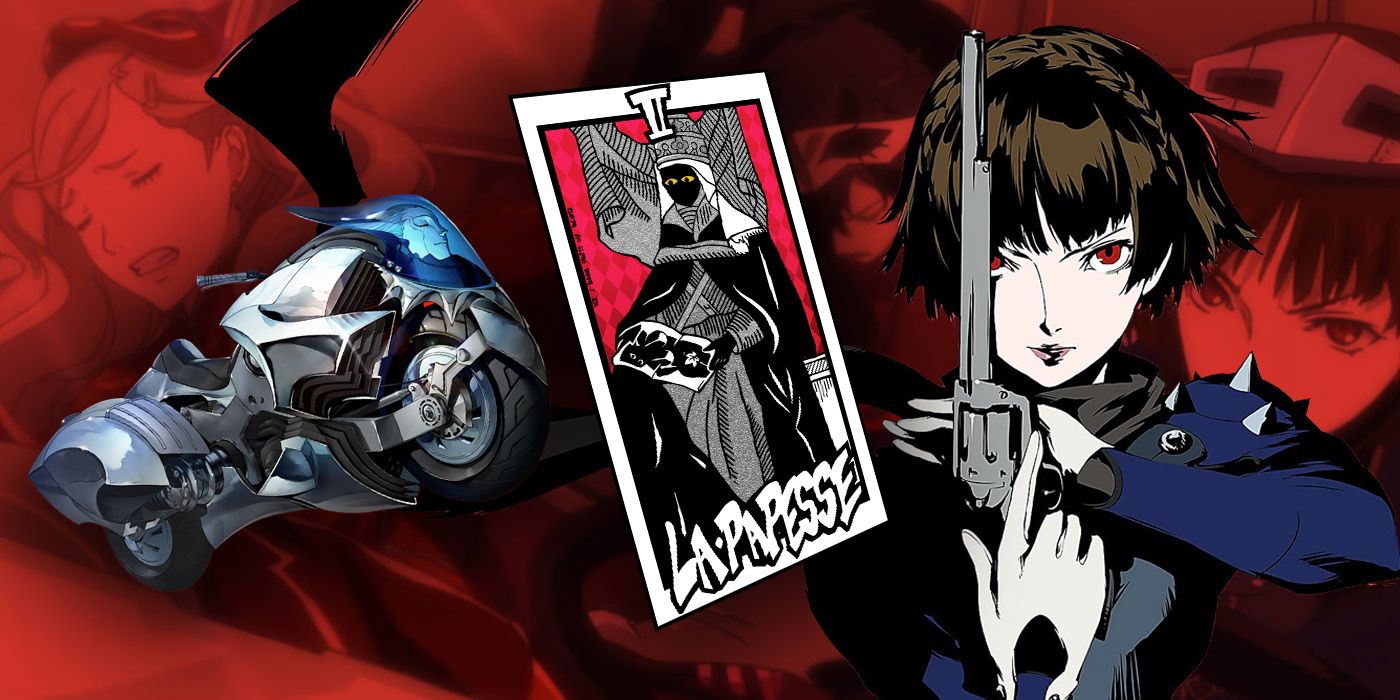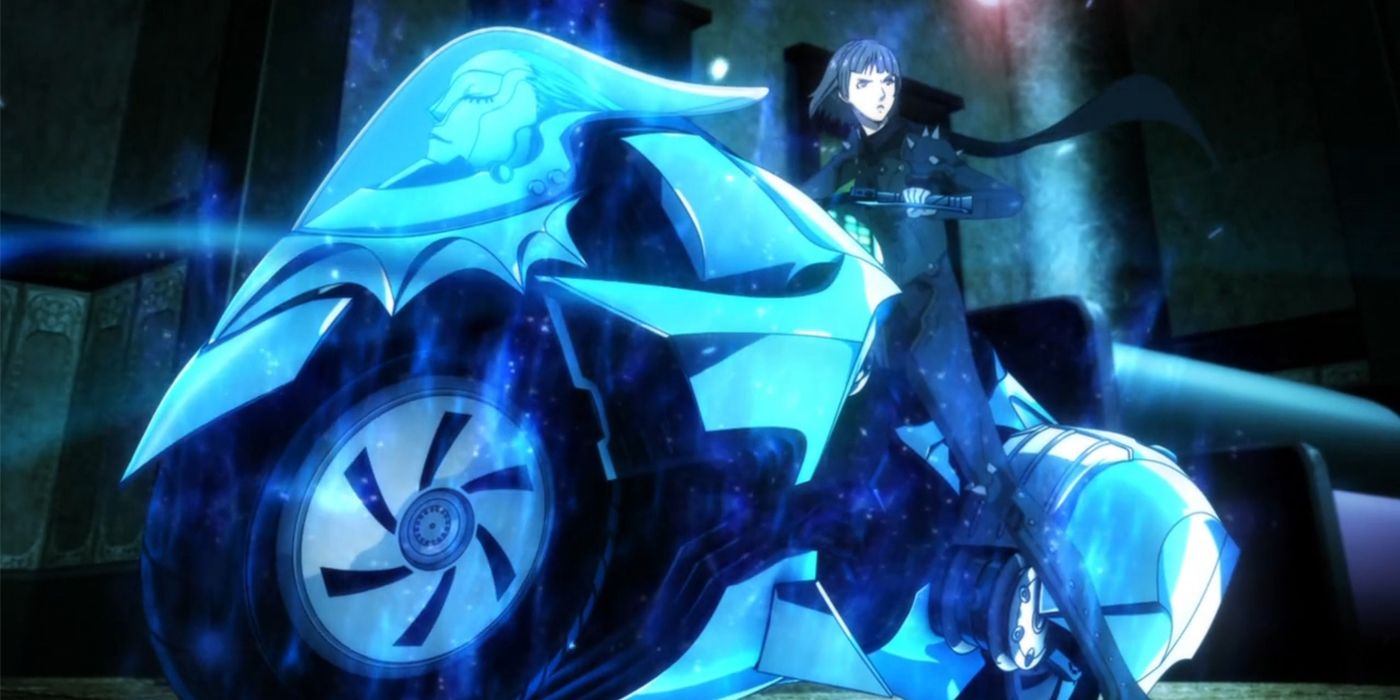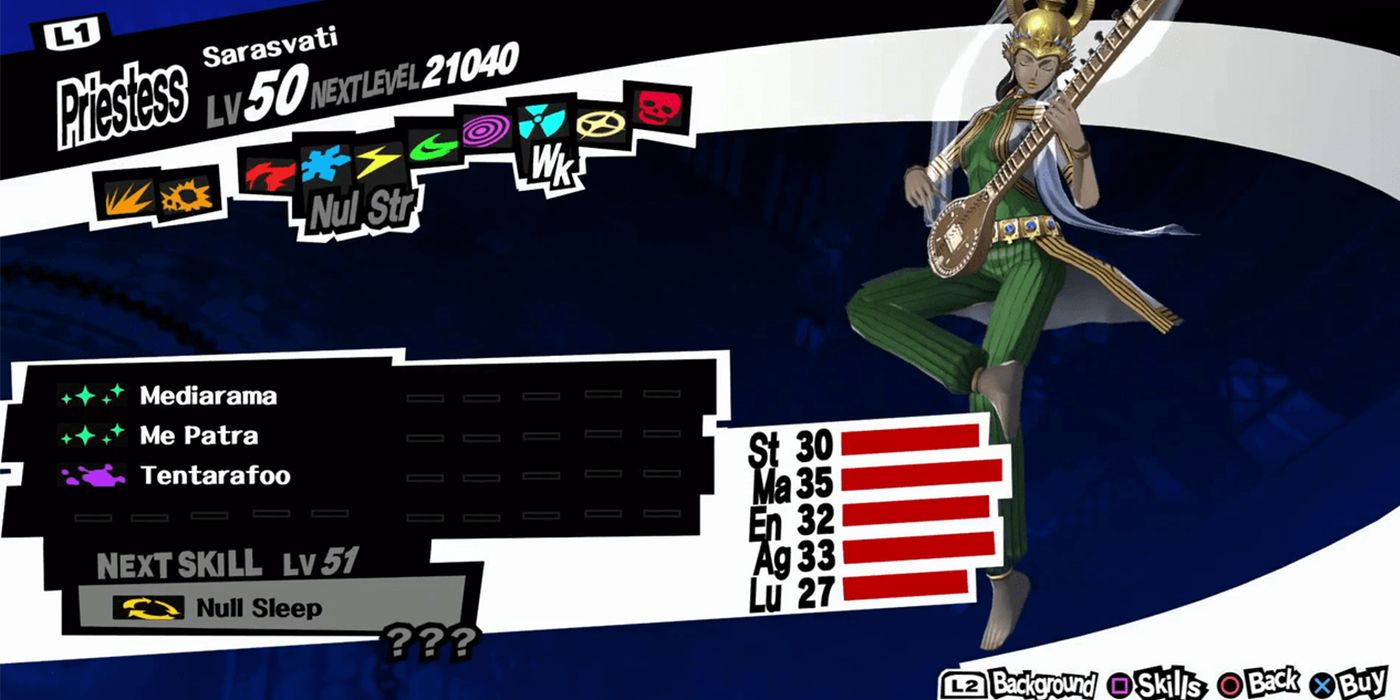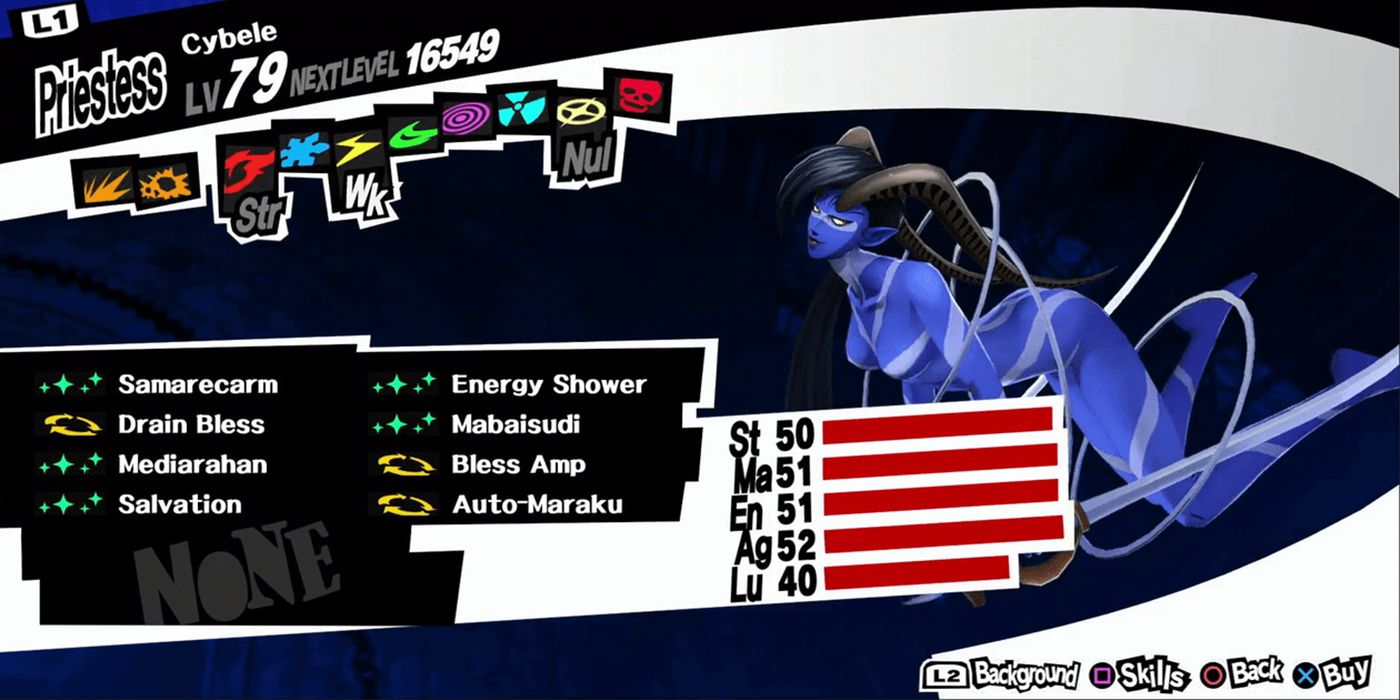Persona's Priestess Arcana, occasionally titled the High Priestess in certain tarot decks, is associated with some of the series' best-loved female characters, and with good reason. The arcana traditionally represents the sacred feminine, intuition, the unconscious mind, and wisdom. In the Persona franchise's most recent release, this arcana is attributed to Makoto Niijima, Shujin Academy's Class President by day and the brains of the Phantom Thieves' operations by night.
Unlike the Fool, representing infinite potential, and the Magician, which signifies empowerment and growth, the Priestess is a more mature, self-assured entity, and that is well-reflected in the personas associated with that arcana. Persona 5's offerings include powerful goddesses, such as the Egyptian goddess of life and death, Isis, and other important religious figures like Kikuri-Hime, who inspired the tradition of Miko shrine maidens in Japan.
Atlus' ability to write a broad range of compelling—if slightly archetypal—female personalities behooves it ability to portray the nuance of wise women. Priestess confidants in past games titles exhibit a tremendous range, from Makoto's assertive, confidant presence in Persona 5 to Persona 4's demure and dutiful Yukiko and Persona 3's soft-spoken and insightful Fuuka. Even though she will likely be associated with the Fool's "wildcard" arcana, rather than the priestess one cannot help but wonder when Persona will feature a leading lady on par with Joker.
Johanna: The Illusory Popess
Even though they all feature stellar designs, not all of the Phantom Thieves' personas were created equally, and it must be said that Makoto wields one of the coolest in the bunch. Her Persona, Johanna, is rendered as a high-tech motorcycle with a glowing glass-encased face at the front. Awesome as the design is, it doesn't provide players with much of a clue about who—or what—Makoto's design refers to. Fortunately, the game's library and some of the teacher's classroom questions provide context.
Johanna, also known as Joan, is a legendary female pope who supposedly led the Catholic Church during a turbulent stretch of medieval history. Stories about her emerged in the 13th century, referring to a woman whose wisdom and prowess allowed her to infiltrate the ranks of the male-dominated church, eventually being elected pope. While the game plays it cool and coy as to whether this figure was real or not, most scholars have determined that she was a work of fiction intended to sew distrust in the church.
Players couldn't ask for a finer representation of the Priestess arcana, especially in a game where themes of masks and double-lives feature prominently. Like Johanna, Makoto has to hide her true nature as a rebellious vigilante under the guise of an honor student and class president. As she matures, Johanna gives way to the persona Anat, an Egyptian war goddess that still fits the priest theme, albeit less apt for the game as a whole, which may be why in Persona 5 Royal, Makoto's final persona is Agnes—yet another name for the legendary female pope.
Sarasvati: Hindu Goddess of Music & Wisdom
Another striking entity from the Priestess arcana is Sarasvati, traditionally spelled Saraswati. The Hindu goddess of knowledge, wisdom, art, speech, and education, Sarasvati is fittingly portrayed as a Hindi woman playing a mandolin, as the goddess is often portrayed with the instrument in religious artwork. Sarasvati is part of a trinity, or Tridevi, of consort goddesses, which also includes Lakshmi and Parvati. She is the lover of Brahma, Hinduism's creation god.
Sarasvati is still worshipped and honored in modern times, and even has a holiday of her own. On the fifth day of Spring, parents teach children to write the letters of the alphabet as part of the festival of Vasant Panchami. Atlus is taking something of a bold risk portraying a contemporary goddess as a collectible entity in a video game, which Hindu players may understandably find to be sacrilegious. Then again, Persona has never shied from controversy, and Sarasvati is far from the only religious figure repurposed as a playable character in the franchise.
Cybele: The Mother Goddess of Phrygia
The most powerful Persona in the Priestess arcana, according to Persona 5, is Cybele, the creation goddess of Phrygia, an ancient Anatolian kingdom. Even though the spelling of the name, and the theming of the Priestess may lead players to suspect a relationship to the Greek oracle sibyl, Cybele is a completely distinct entity (often spelled Kybele). The Greeks did draw inspiration from Cybele however, using the primal goddess as the basis for the titan, Rhea, the wife of Cronus. Aspects of her can also be seen in Gaia, and Demeter.
The people of Phrygia worshipped Cybele with orgiastic rites, which may partially explain her risqué design as a nude, blue woman with pale stripes—though again, the bizarre design could just be the persona design team's imaginations running wild. Cybele was also associated with wilderness and wild animals, particularly lions. Her Roman counterpart, Magna Mater, actually drives a chariot driven by a pair of lions.
Cybele is unique in that more is known about her theological "descendants," than the original goddess herself, as many of the details of her worship have been lost to antiquity. She was often referred to as "mater," meaning mother goddess, and held dominion over the boundaries of the known and unknown, which is fitting, both for the Priestess arcana's dominion over mental realms and the subconscious, and for the Persona's series blurred lines between unknown, semi-abstract worlds and reality.
Like many ancient goddesses, much of what is known about her myths pertains to her relationship with a male figure: Attis. Unfortunately, Attis was a common name, and may refer to the founding member of her priesthood, her son, or her consort—or possibly all three, depending on the context.
Mechanically, Cybele is one of the best healing personas in the game, and the only source of the precious Drain Bless passive ability but she is far from trivial to fuse, so players may want to consult a chart before attempting to add her to their ranks. Like all of the Persona arcanas, the Priestess is rife with fascinating folklore, and each entry is worth digging into for greater understanding. It will be interesting to see what additions Persona 6 brings and how it will portray the confidant representing the arcana.







